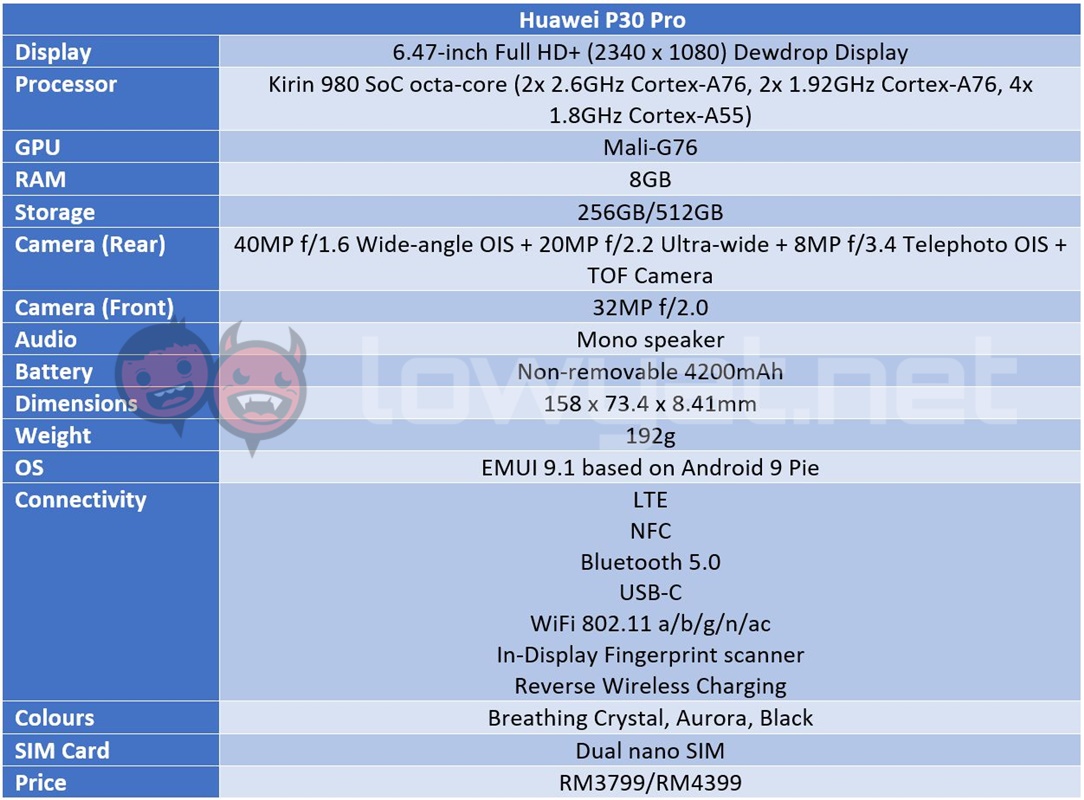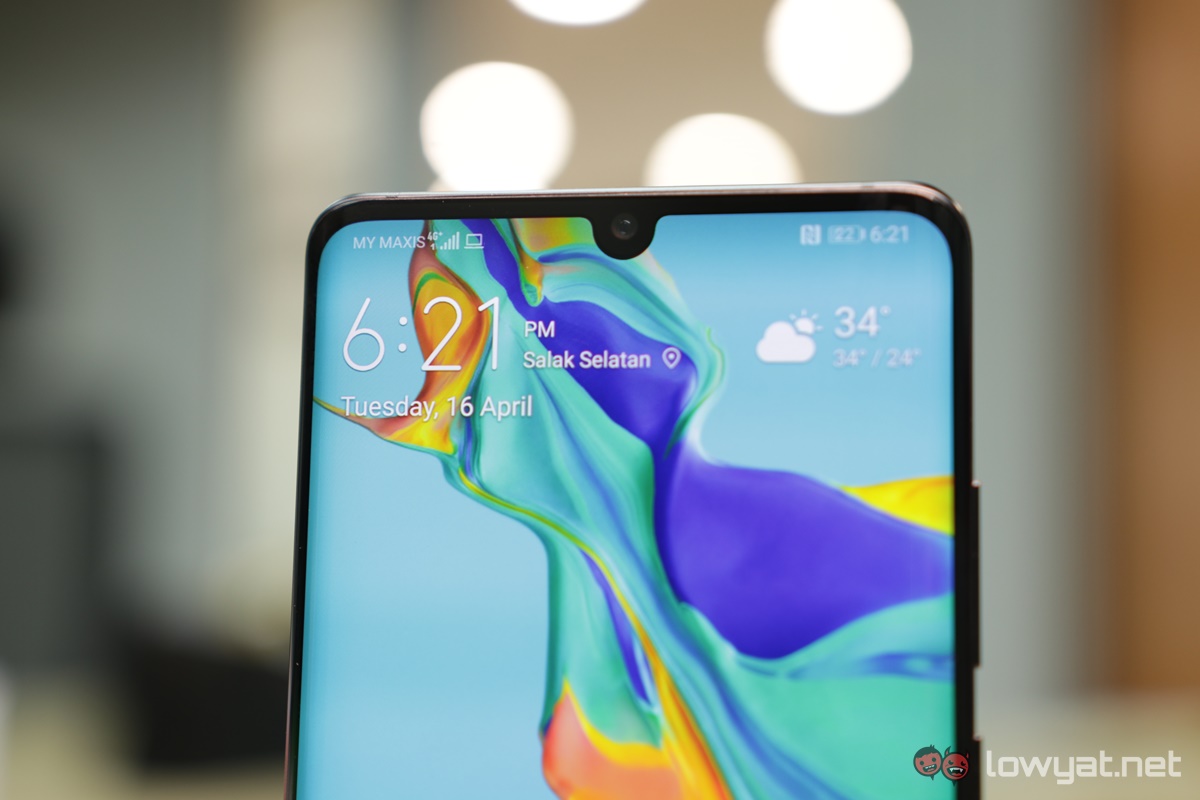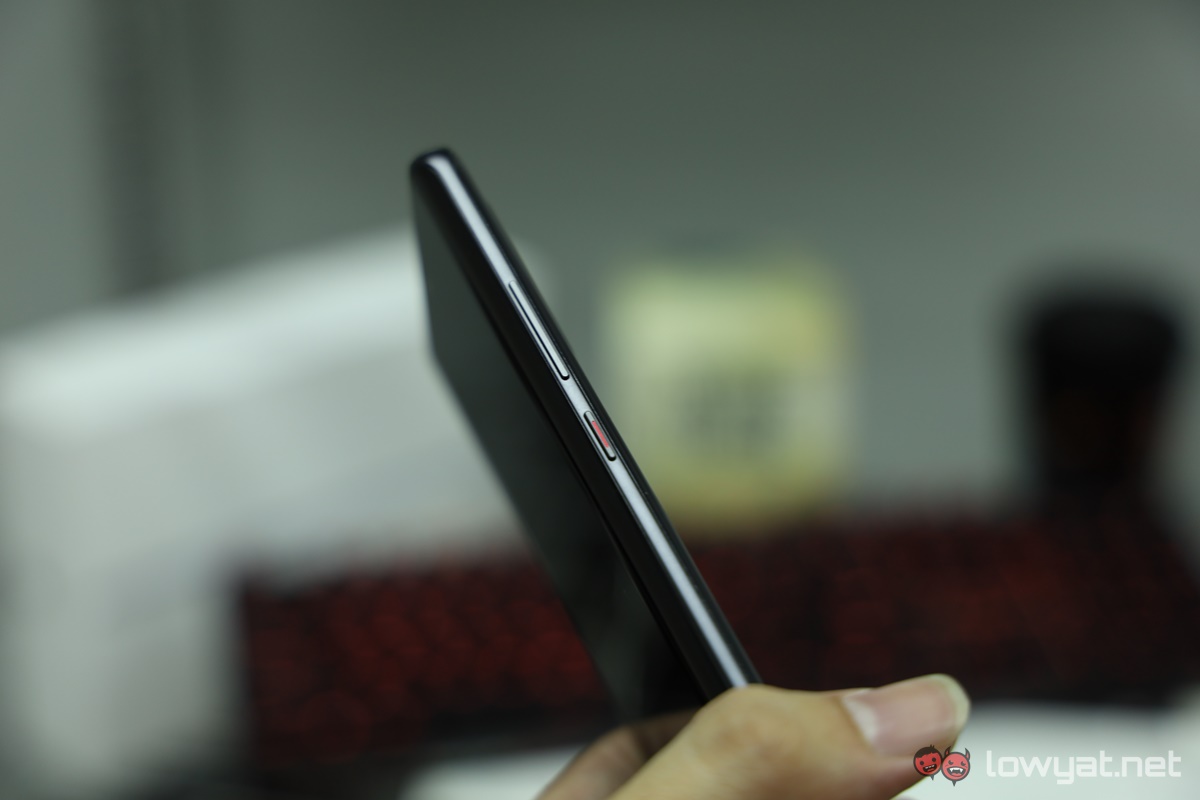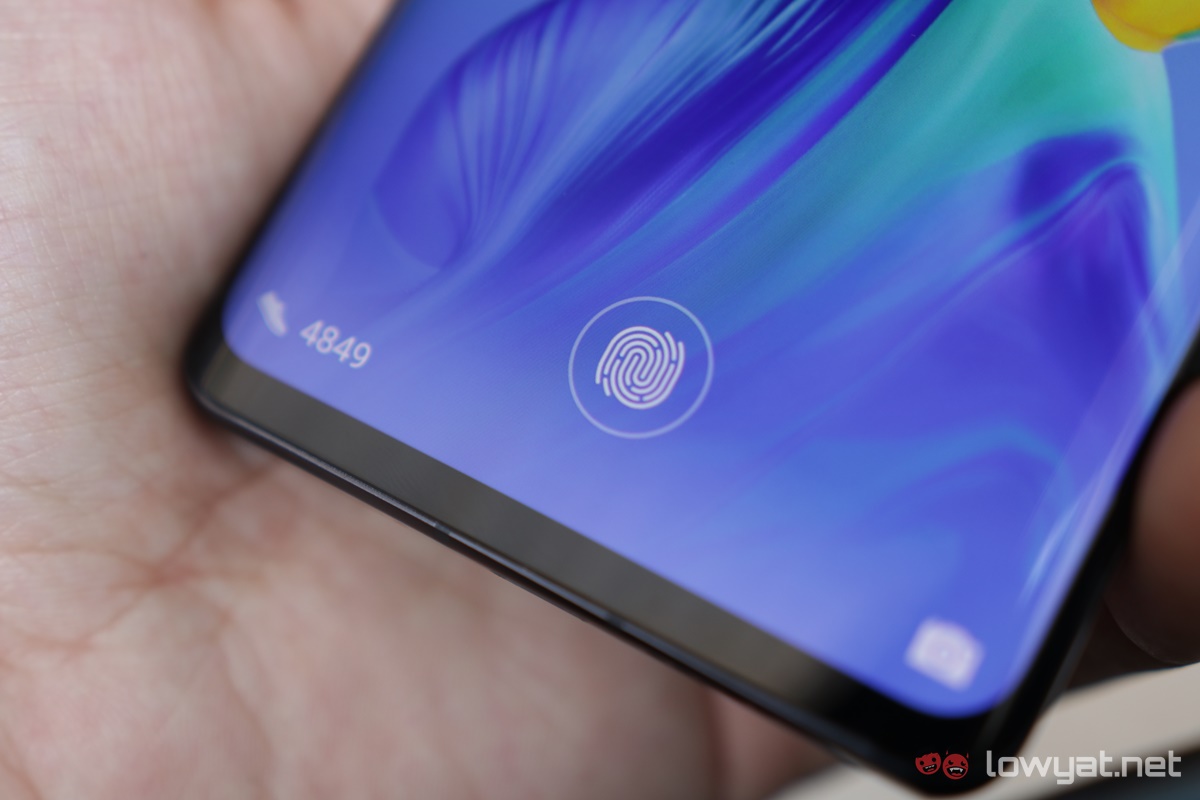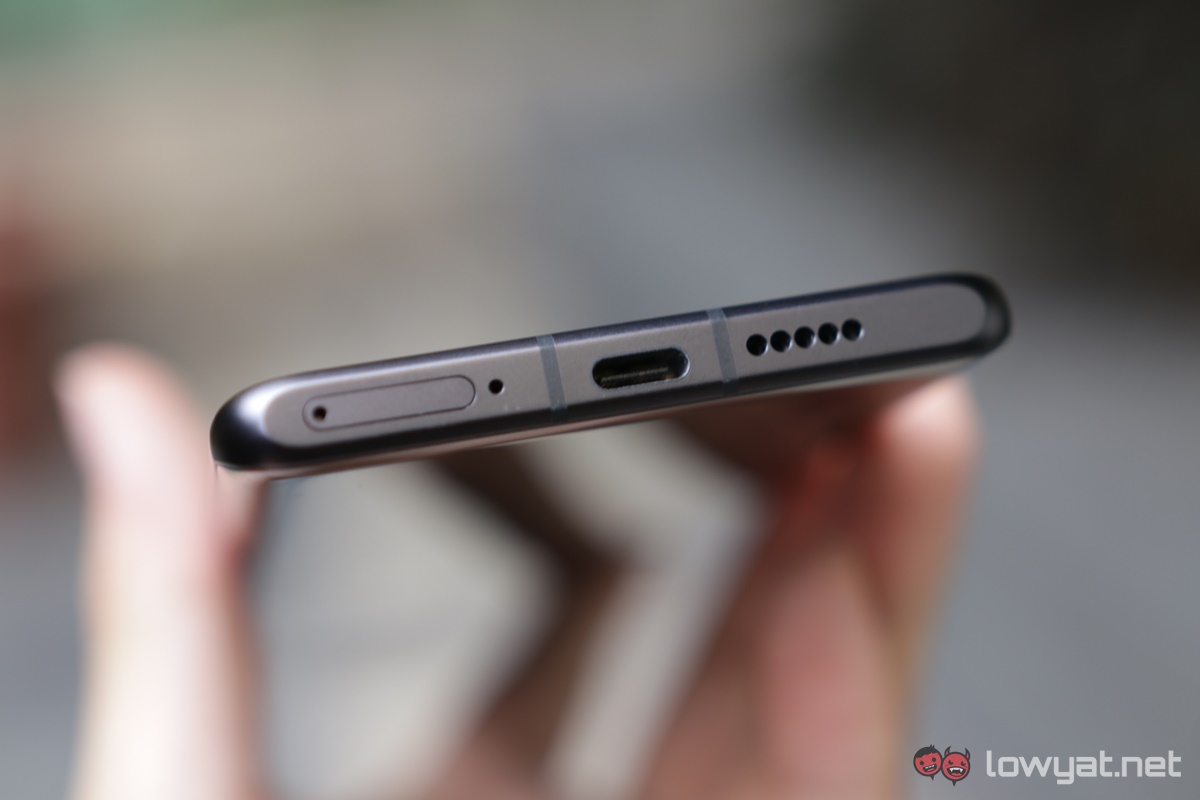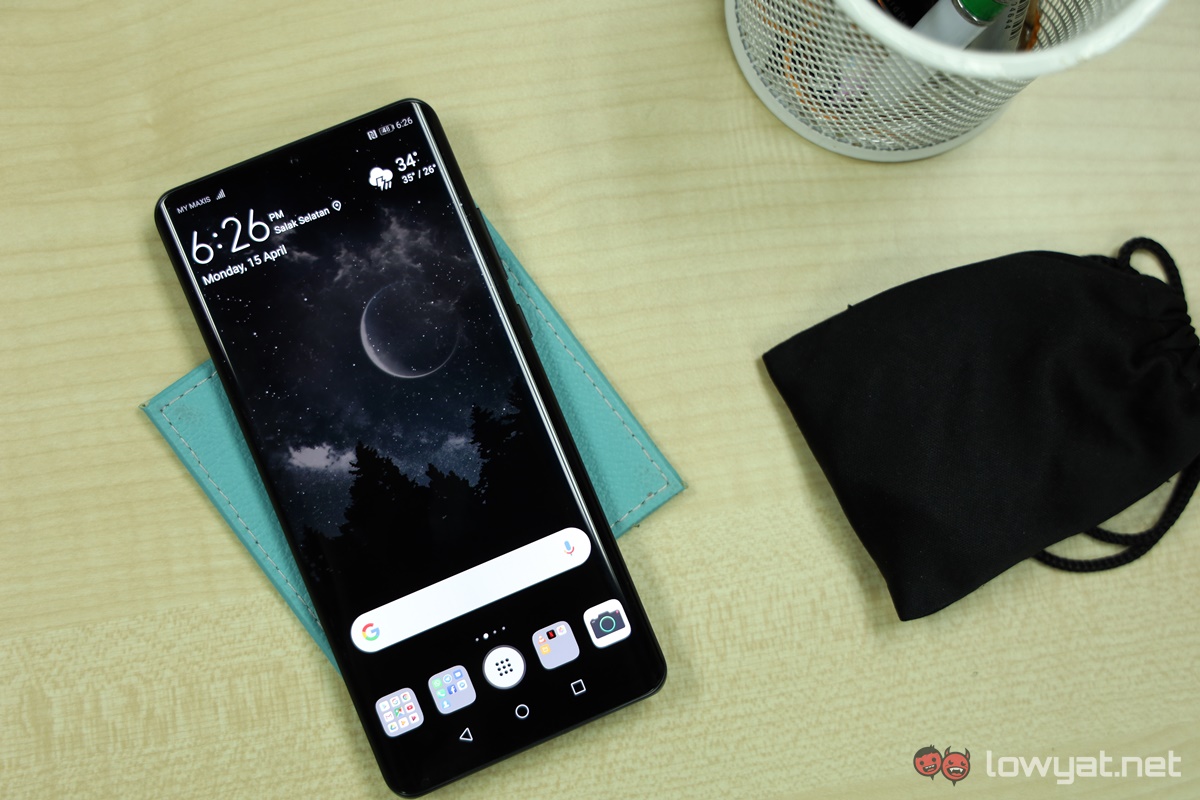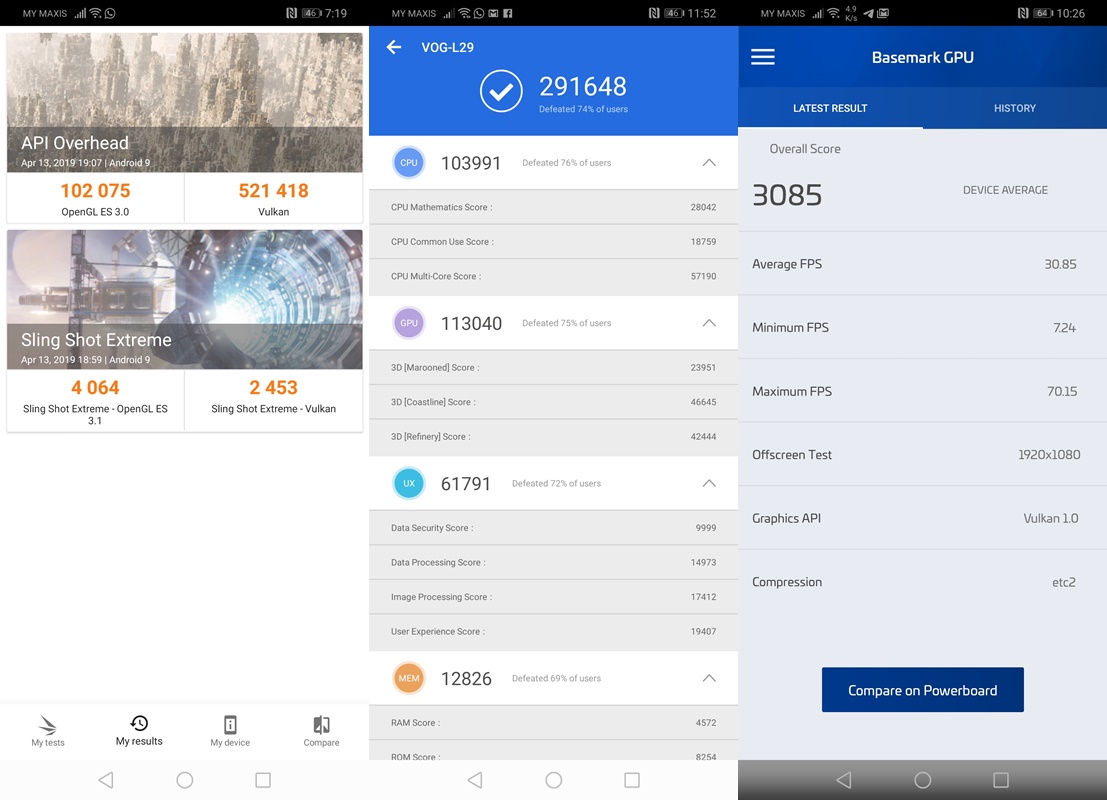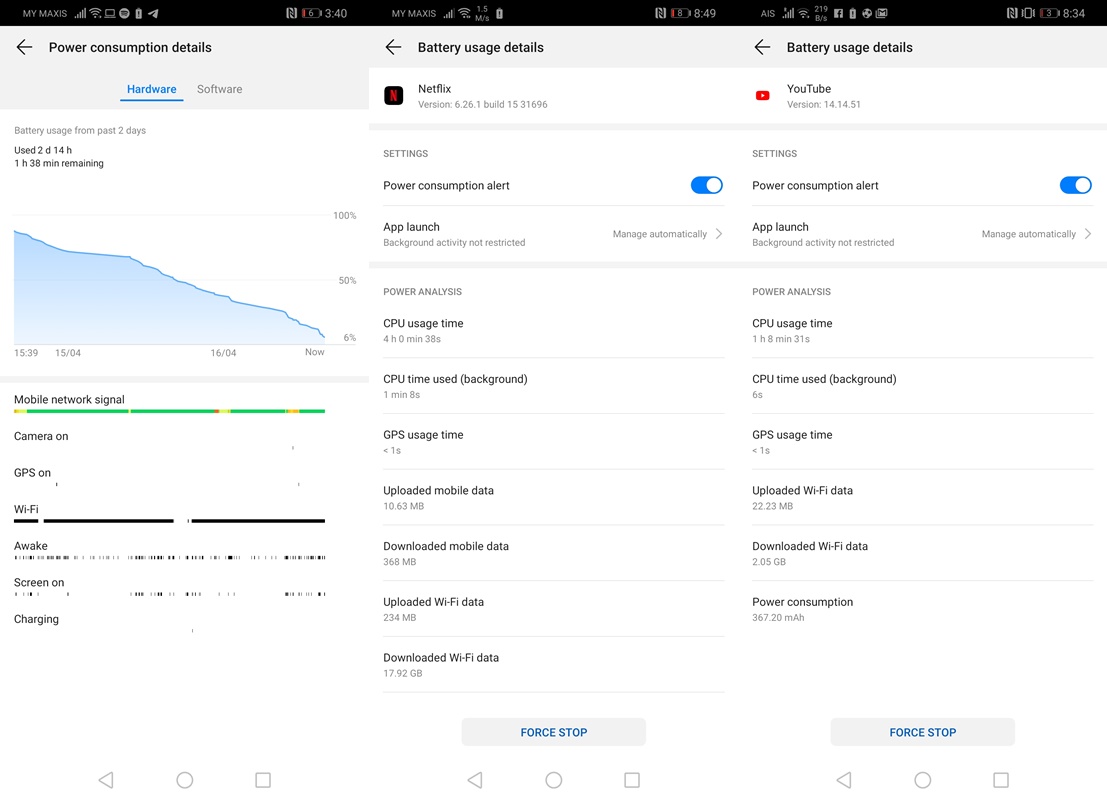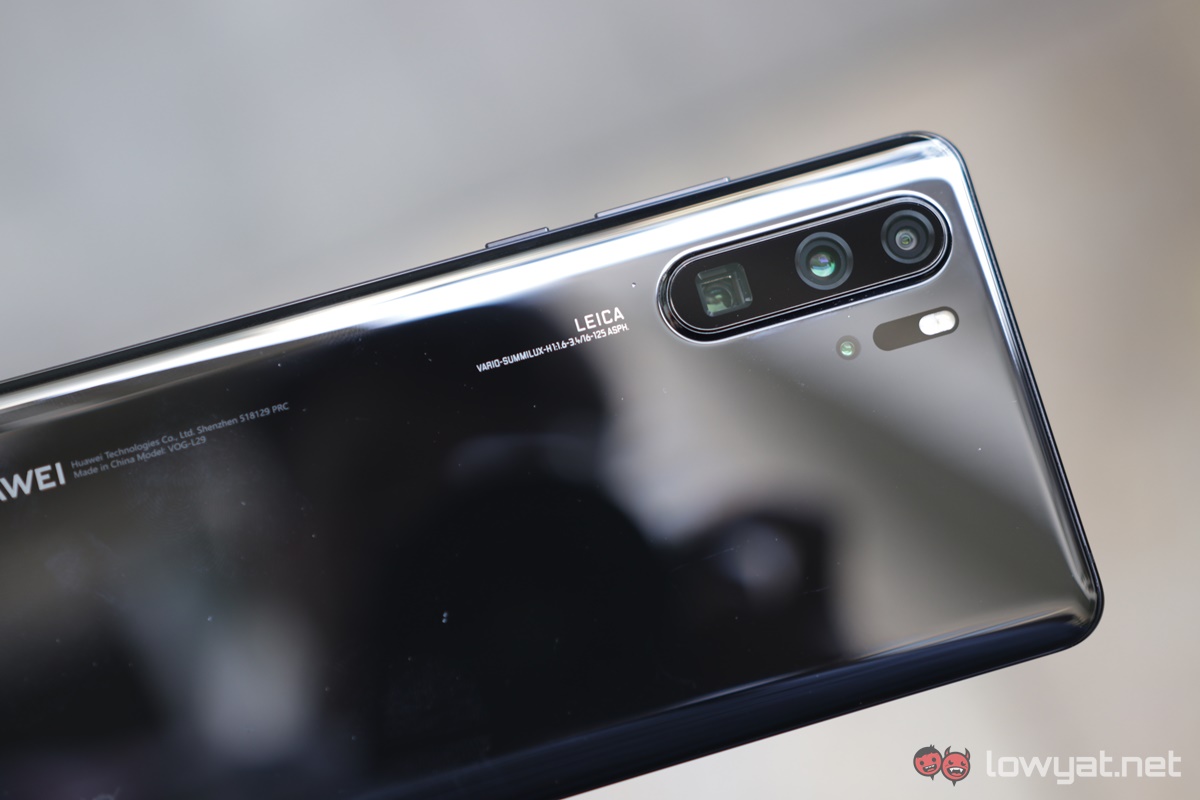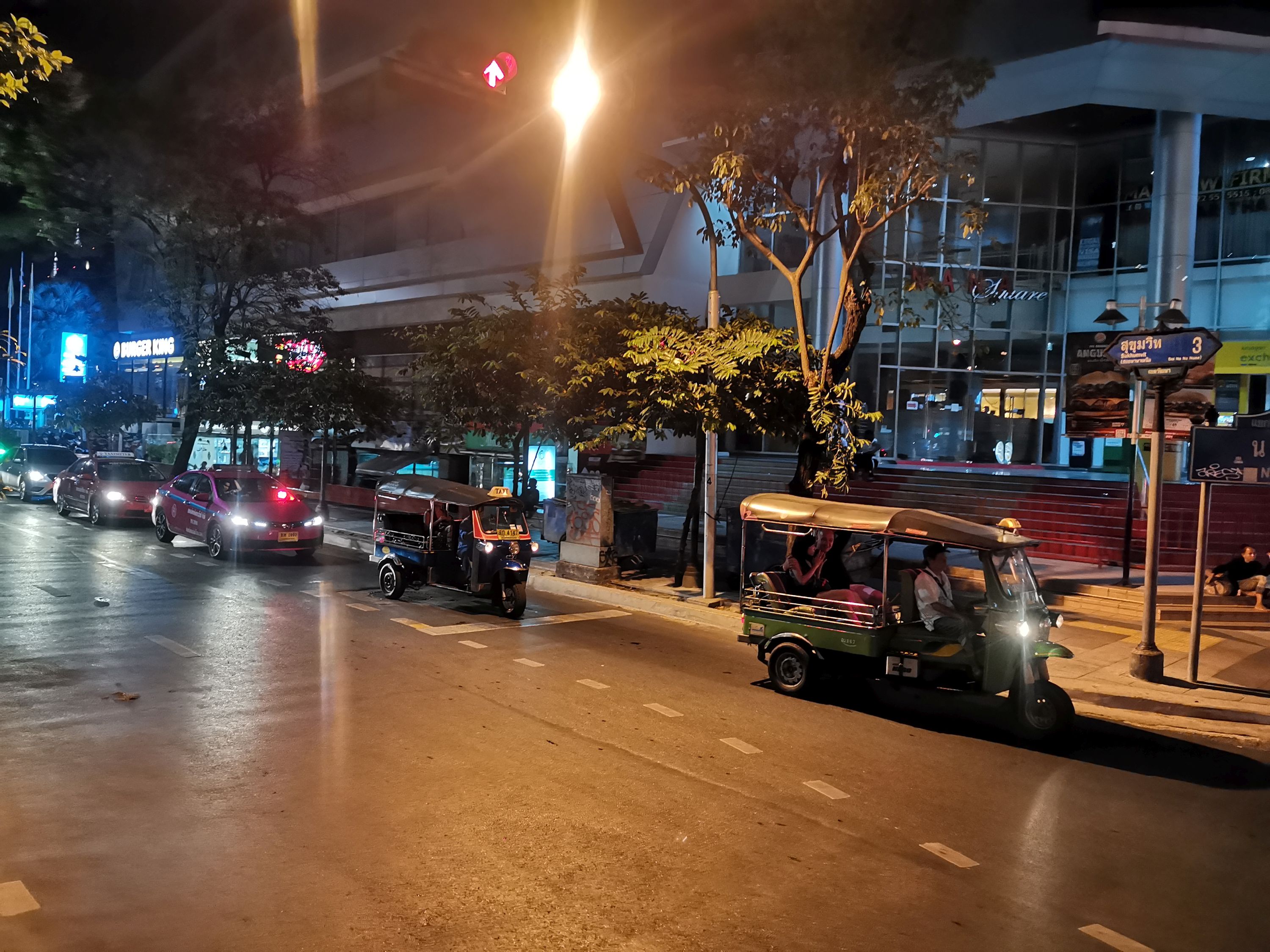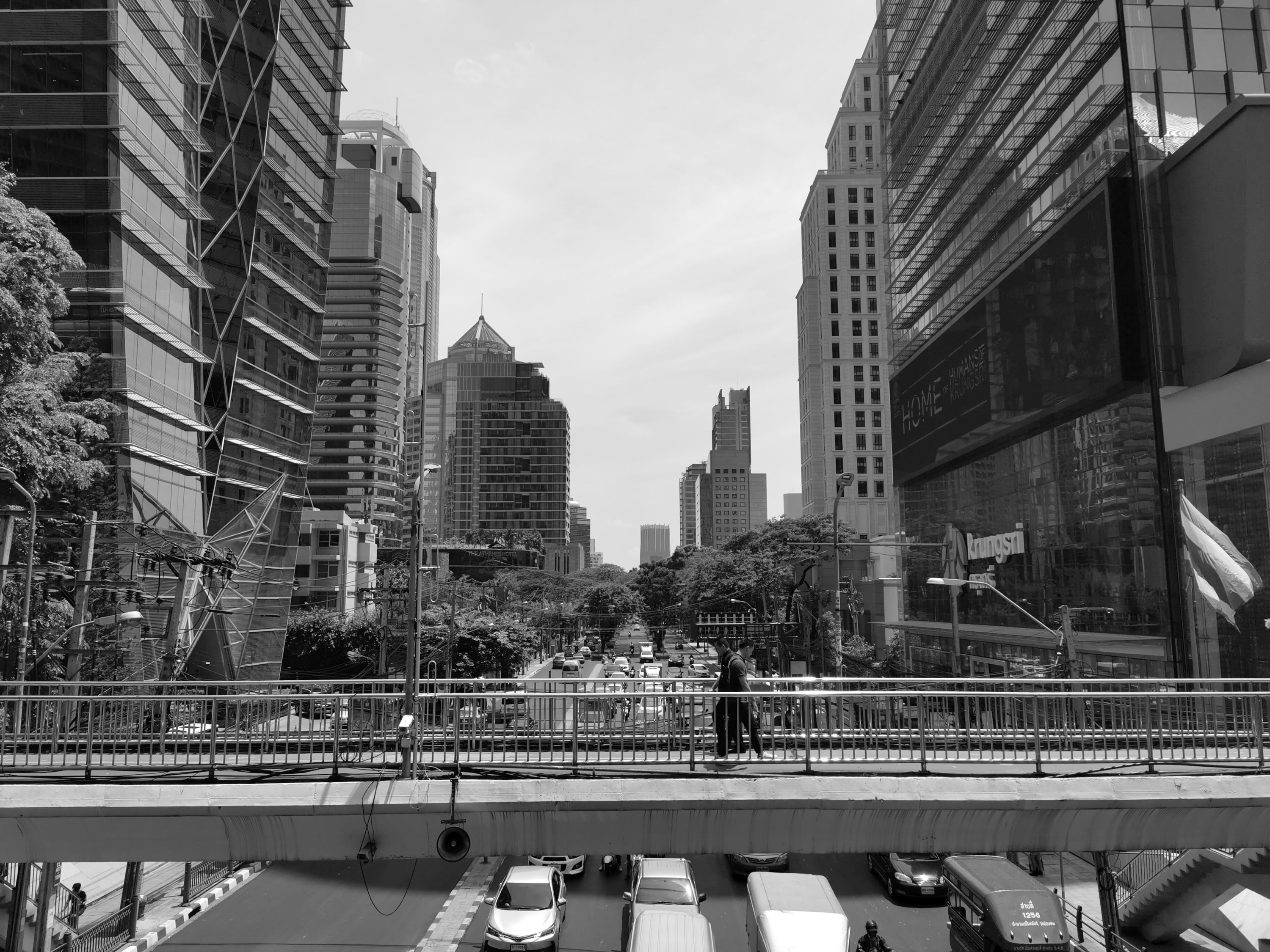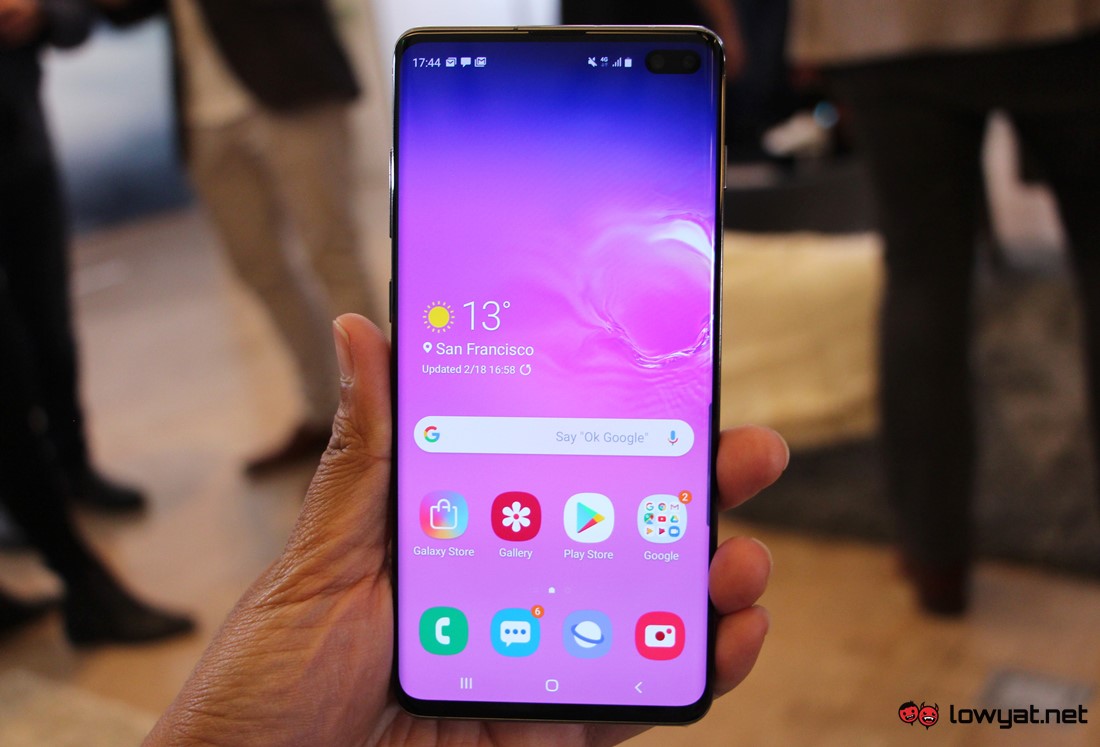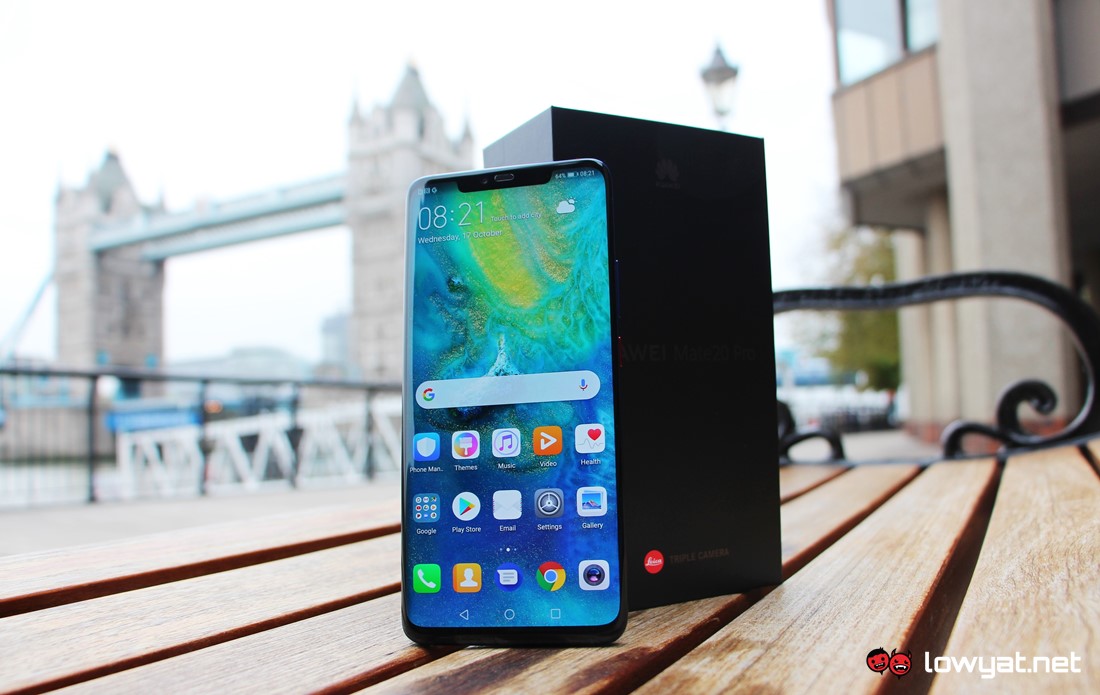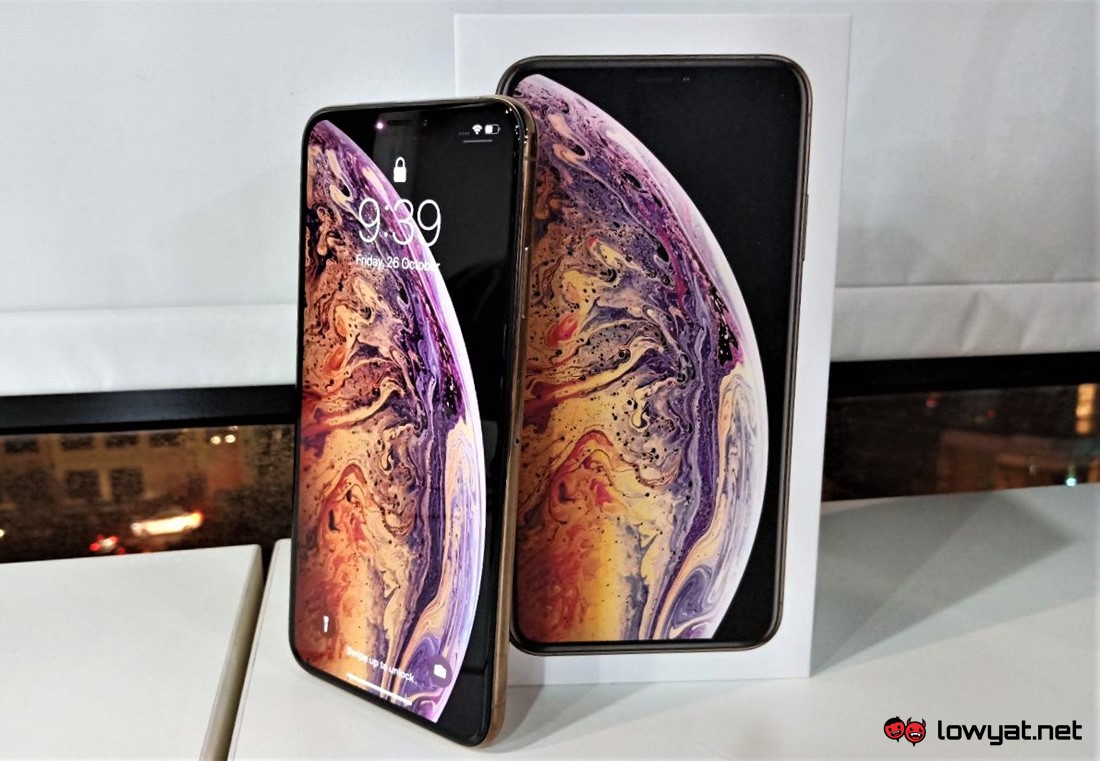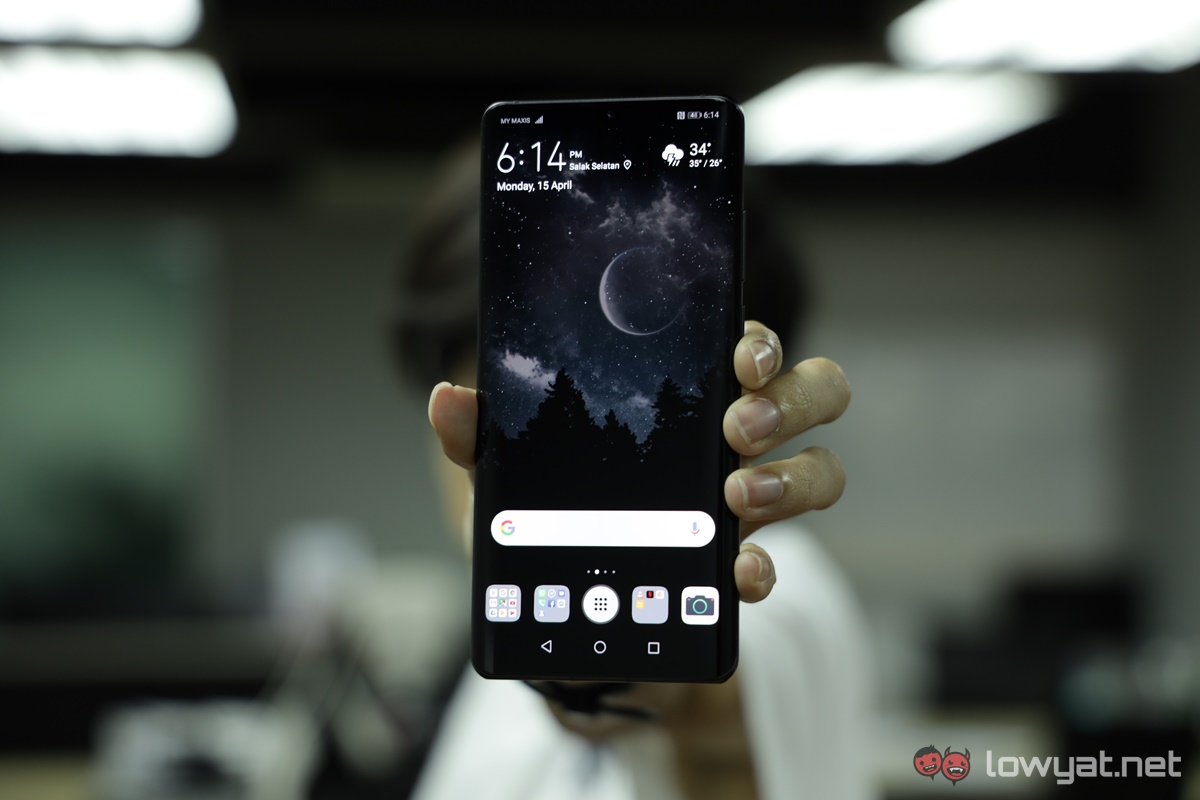The obvious question then; is the P30 Pro’s camera really as good as Huawei is making it out to be?
Specification
The P30 Pro is the brand’s first phone to ship out with a quad-camera setup, although it should be noted that the fourth camera is merely a Time-of-Flight (TOF) camera. Unsurprisingly, The P30 Pro comes with Huawei’s Kirin 980 SoC, which first came on to the scene with the brand’s launch of the Mate 20 series last year. It also has a large 6.47-inch Full HD+ display, albeit with a dewdrop notch. Storage expansion is possible with the phone, but like the Mate 20 series, it’s only possible with Huawei’s Nano Memory (NM) card.
Design
To be honest, the design of the P30 Pro’s chassis feels all too familiar. I remember when the use of a curved 2.5D display and back design used to be something that Huawei’s competitor, Samsung, began doing with its own set of phone, and that was more than four years ago. One thing that you’ll notice about the P30 Pro is that it has no speaker grille at the top of the display. In its place, Huawei utilises a technology known as electromagnetic levitation, which is similar to the piezoelectric speaker technology used in devices such as the original Xiaomi Mi Mix.
A familiar yet updated design.
That isn’t to say it’s a bad design; it’s a timeless look, and still feels equally as good in my hands. The glass black gives the phone a nice, smooth feeling in my hands. One distinctive design that I actually like is how the base and top of the phone is flat. It’s not an aesthetic point that many people would pick up on, but I think it just adds to design’s overall charm.
Having said that, it’s also quite slippery, as well as rather horrid fingerprint magnet if your model is a colour other than black. On that note, you’ll definitely want to get a cover for it as soon as possible.
In-display fingerprint scanner allows for greater screen-to-surface ratio.
Compared to its predecessor, the display on the P30 Pro is pretty to look at, and comes with a couple of new features. Notable among these features is the presence of the in-display fingerprint scanner, which is found in the bottom half of the display. Implementation of the new biometric scanner negates the need for the physical fingerprint scanner that was once an integral part of past Huawei flagships.
Thanks to the newfound display real estate, I really like the all-display design and aesthetic that the P30 Pro sports. While I also appreciate that Huawei has kept the display’s chin thin, I still believe that Huawei could have done away with the notch. On that note, I should mention that the notch does house a large 32MP front-facing camera sensor within.
The 3.5mm headphone jack is absent.
Alas, keeping the new design also means that some features were sacrificed from the P30 Pro. Unlike the smaller P30, the P30 Pro lacks a 3.5mm headphone jack. Huawei remedies this problem by providing a USB-C to 3.5mm cable. However, our unit regrettably did not come with this accessory.
The P30 Pro handles sound via the mono speaker grill located at the base of the phone. However, I feel like this is a missed opportunity for Huawei to have installed another speaker at right where the earpiece would be. After all, its main rival, Samsung, had jumped on that bandwagon a generation ago with its Galaxy S9 series.
User Experience
The first thing that impresses me about the P30 Pro is the speed of it all, thanks in no small part to the Kirin 980 SoC. Everything runs at peak condition; apps are quick to load, and EMUI is just so very responsive.
EMUI definitely feels more refined.
On the subject EMUI, I love that the P30 Pro retains Huawei’s software for knuckle gestures. It’s a real time saver to be able to take a screenshot simply by tapping on the screen twice, and while many may not be impressed with it, I think it’s a convenient feature that many of us take for granted. I like that Huawei provides an “Always On” feature for the display as well. Even more that it is an option to be turned on or off, and not just static feature that cannot be customised.
In-display fingerprint scanner doesn’t always work properly.
Of course, it shouldn’t surprise anyone that not everything is rosy with the P30 Pro’s features. Chief among which is the in-display fingerprint scanner. I actually find myself applying a considerable amount of pressure on the biometric reader. Otherwise, the phone won’t unlock itself. On another note, the P30 Pro’s facial recognition is – like everything else – fast and I find myself using the feature more often than fingerprint scanner.
Given the speed and responsiveness of the P30 Pro, it should come as no surprise that the phone’s performance is outstanding. After all, the Kirin 980 SoC is Huawei’s current and most powerful chipset on the current market, and the fact that it’s being aided by a whopping 8GB of RAM does make a distinct difference.
Impressive battery life, even more impressive charging speed.
It’s clear Huawei has made some improvements on battery endurance since the P20 series, and it actually shows on the P30 Pro and its large 4200mAh. As my daily driver, I can go about doing my business with the phone for nearly two and a half days before it starts screaming for its power socket or a powerbank. For the record, I’m a pretty heavy smartphone user, and as such, I have a habit of binge-watching a ton of shows and videos, be it on Netflix or YouTube. In the case of the P30 Pro, the phone gives me approximately five hours on average before it’s on its last leg.
Also as expected, Huawei’s 40W SuperCharge on the P30 Pro isn’t just for show. In our testing, half an hour of charging gives the phone 58% of battery. That’s an impressive feat. One other thing; the P30 Pro reverse wireless charging definitely works, but during our testing, I didn’t find any reason or scenario where I would need to use the feature.
Camera
Given the success of the P20 Pro’s triple-camera system – and its partnership with the Leica – the stakes are significantly higher for Huawei this time around. So, believe me when I say to you – the camera system of the P30 Pro does not disappoint, as well as being the most impressive camera system I have used on a high-end flagship. To date. In essence, the P30 Pro’s quad-camera setup sounds similar on paper; you’ve got that enormous 40MP wide-angle sensor, the 20MP ultra-wide angle shooter, the 8MP telephoto lens, and a new Time of Flight (TOF) camera sensor.
The new SuperZoom is really that good.
The critical difference between the two camera systems lies with the 8MP telephoto lens. Rather than using the traditional (read: current) telephoto zoom setup for a camera phone, Huawei employs what it refers to as a “periscope” design, rearranging the parts and elements of the camera so that it sits in a vertical alignment when taking shots in landscape mode.
The end result is – on top of its current ability to capture really detailed and impressive shots – a zoom function unlike any other. As per the following images, the details that the P30 Pro is able to retain even when I zoom into a subject is impressive.
At 30x zoom, the detail retention of the tower is remarkable, even beyond the P30 Pro’s optimal 10x hybrid zoom threshold. Even at its maximum zoom length of 50x, images captured at a distance – such as the full moon – looks understandably noisy. Despite that, I can still see the details of the craters on the moon. As these things usually go, there are caveats to using the P30 Pro’s SuperZoom function. Firstly, using the SuperZoom function limits the camera’s resolution to just 10MP. Switching to the phone’s maximum resolution of 40MP simply disables the zoom function. Second, shooting in a zoomed mode is highly unstable, especially if you do not possess steady hands. So, if you’re looking at capturing some really detailed images using the SuperZoom function, I do advise you to invest in a simple tripod. This is despite the fact that the P30 Pro’s camera comes with Huawei’s already reliable and proven AIS (Artificial Intelligent Stabiliser) system in place.
Camera system is unbelievably amazing.
Beyond the zoom and I mentioned earlier, the P30 Pro takes some seriously breathtaking images. As evidenced by the full moon pictures, the camera’s Night Mode negates the need for a tripod. Image clarity is high, and subjects can easily be made out without the need for second-guessing.
Taking pictures with the P30 Pro’s monochrome mode is still an absolute pleasure, as it always has been since its introduction with Huawei P9 series. Yes, the feature has been around for a while now, but with the P30 Pro, the picture I take with it seem to evoke a greater sense of emotion.
Sample Images
Competition
At a starting asking price of RM3799 and given the hardware it carries, Huawei is trying to aggressively price the P30 Pro as best it can. However, at that price point, there undeniably several competitors from other major brand names as well. Here are some of them.
Samsung Galaxy S10+
You can’t talk about Huawei and not mention one of its biggest competitors in the Android ecosystem, Samsung and its top-tier flagship, the Galaxy S10+. While the Galaxy S10+ lacks the default 10x hybrid zoom function (it only goes up to 2x), it more than makes up for with its dual aperture, 16MP+12MP+12MP main camera array. Price-wise, the Galaxy S10+ retails for about the same as the P30 Pro at RM3699. At that price, the variant we’re getting is powered by Samsung’s Exynos 9820 SoC, 8GB RAM, 128GB of expandable story, and a non-removable 4100mAh battery. To top it off, you also get a 6.4-inch Quad HD+ Super AMOLED Infinity display, coupled with an in-display fingerprint scanner, courtesy of Qualcomm.
Huawei Mate 20 Pro
It shouldn’t come as a surprise that one of the main competitors to the P30 Pro is actually a sibling within the family. With the exception of the new periscope lens and SuperZoom function, the Mate 20 Pro is a carbon copy of the P30 Pro. That means you’re getting the same Kirin 980 chipset, memory and storage configurations, in-display fingerprint scanner and facial recognition software, and EMUI experience. The major difference between the P30 Pro and Mate20 Pro is the price; the latter is currently retailing for RM800 less at RM2999.
iPhone Xs Max
The iPhone Xs Max may not come equipped with an equivalent zoom function to the P30 Pro. Nonetheless, it is still a premium smartphone by society’s standards. By price alone, the basic iPhone Xs Max with 64GB storage retails for RM4699. If you were to match the P30 Pro’s base storage configuration of 256GB, that price jumps to RM5699. That price isn’t without its own set of reasons. Despite being outclassed by the P30 Pro, its dual camera system is by no means a slouch. More importantly, the iPhone Xs Max still retains the same sturdy build quality as the original iPhone X, and iOS still feels far more fluid and responsive than Android OS.
Conclusion
When the Huawei P20 Pro launched last year, its camera system laid the foundation of what the brand needed to emulate and improve upon. The Huawei P30 Pro is both living proof and a testament that sometimes, it is possible to improve upon what is already good.
Huawei’s best camera phone to-date.
That isn’t to say that the phone is without its own set of flaws; the in-display fingerprint scanner can still use some work, and video recording on the P30 Pro still isn’t quite up to par. Having said that, the new periscope lens and SuperZoom functions makes the P30 Pro one of the most exciting phones I’ve ever used. I highly recommend the device, especially if you’re looking for a smartphone from a purely photographic standpoint. Photography by Soh Li Jin, Leon Lam and Ke Ming Hoo.
